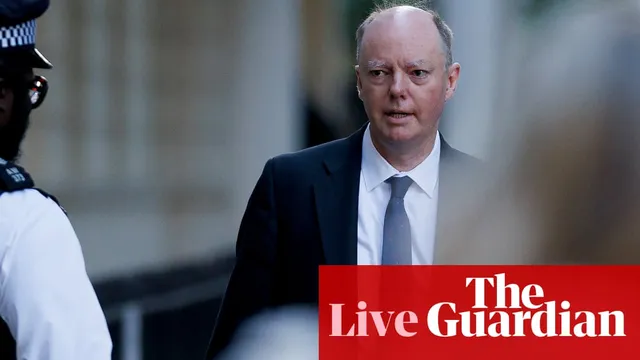
Chris Whitty reveals political choices behind UK's ICU capacity during Covid
2024-09-26 12:56- Sir Chris Whitty, England's chief medical officer, testified at the Covid-19 Inquiry, highlighting the UK's low intensive care unit (ICU) capacity before the pandemic.
- He attributed this lack of capacity to political choices made over the years, particularly under Conservative governments, which led to reduced NHS budget increases.
- The testimony underscores the severe strain on healthcare during the pandemic and raises questions about the adequacy of the UK's healthcare system in emergencies.
Express your sentiment!
Insights
In a recent session of the Covid-19 Inquiry, Sir Chris Whitty, the chief medical officer for England, provided critical insights into the state of the UK's healthcare system before the onset of the Covid-19 pandemic. He stated that the country had a notably low capacity for intensive care units (ICUs) compared to other wealthy nations, a situation he described as a result of political choices made over the years. This lack of preparedness became evident as the pandemic unfolded, leading to dire consequences for healthcare providers and patients alike. Professor Whitty's testimony followed accounts from other medical professionals who described the harrowing conditions in hospitals during the pandemic. Reports of overwhelmed staff and inadequate resources painted a grim picture of the healthcare crisis, with some nurses resorting to extreme measures due to the lack of supplies. The emotional toll on healthcare workers was profound, as they faced unprecedented levels of death and suffering. The inquiry also highlighted the historical context of NHS funding, noting that budget increases had dwindled to record lows under Conservative leadership. This trend contributed to the systemic issues that became apparent during the pandemic, raising concerns about the long-term sustainability of the UK's healthcare system. Ultimately, Whitty's evidence calls for a reevaluation of healthcare policies and funding to ensure that the NHS is better equipped to handle future emergencies, emphasizing the need for a robust and adequately resourced healthcare system.
Contexts
The UK's ICU capacity during the Covid-19 pandemic was influenced by political decisions, as revealed by Chris Whitty. The pandemic prompted a shift in focus from the virus to government control, leading to increased authority and compliance among citizens. This environment allowed some politicians to exploit the situation, creating a divide between those valuing individual freedoms and those supporting government intervention. The impact of the pandemic on healthcare has been significant, with over a million hospital admissions since 2020 and many patients experiencing disrupted care. The UK Covid inquiry is set to examine these healthcare challenges, including staffing issues and treatment quality, as families seek accountability for the pandemic's effects on their loved ones. Additionally, the pandemic has highlighted the importance of effective disease detection, particularly in developing countries, as seen in the revitalization of diagnostics efforts. The ongoing challenges faced by disabled and immunocompromised individuals in accessing care further emphasize the need for a healthcare system that prioritizes the health of high-risk populations. As the UK navigates the aftermath of the pandemic, the tourism sector struggles to recover, lagging behind European counterparts. This slow recovery raises concerns about the future of UK tourism and the broader economic implications of the pandemic.